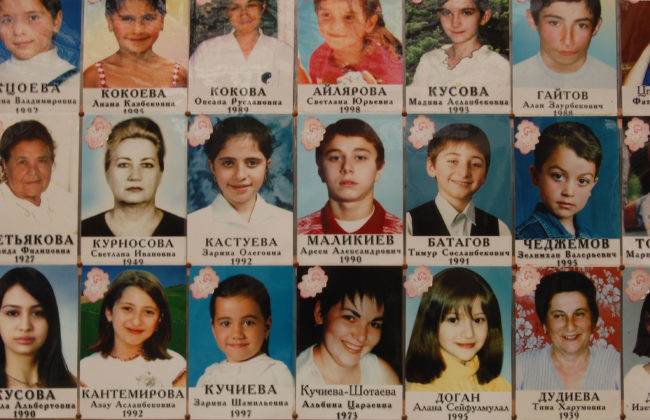

 The European Court of Human Rights has ruled that Russia should pay €2,955,000 ($3,100,000) in compensation to the victims of the 2004 Beslan school siege and their families. The full text of the court’s verdict was published on its website on 13 April.
The European Court of Human Rights has ruled that Russia should pay €2,955,000 ($3,100,000) in compensation to the victims of the 2004 Beslan school siege and their families. The full text of the court’s verdict was published on its website on 13 April.
Russia is must now pay €10,000 to the relatives of those killed and €3,000–€7,000 to those injured during the siege as well as €88,000 in court costs.
‘In the case of Tagayeva and Others v. Russia, the Court found several violations of the right to life on account of serious failings in the Russian authorities’ handling of the Beslan hostage crisis’, the press release reads.
On 1 September 2004, a school in the North Ossetian town of Beslan was taken over by a group of armed North Caucasian militants. Over 1,000 people were held hostage for over fifty hours, the majority of them children. Following explosions, gunfire, and storming of the school by Russian security services, over 330 people lost their lives (including over 180 children) and over 750 people were injured.
Chechen guerrilla commander Shamil Basayev claimed responsibility for the attack, whose aim was to force Russian troops to pull out of Chechnya and to acknowledge its independence. Basayev later claimed that he had ‘miscalculated the Kremlin’s determination to end insurgency by all means possible’.
According to the court, the Russian authorities ‘had been in possession of sufficiently specific information of a planned terrorist attack’, yet not enough had been done to prevent it. The Court was also critical of Russia’s investigation into the case writing that ‘the Government had not provided a “satisfactory and convincing explanation” that the lethal force used had been no more than what had been absolutely necessary’.
The Russian government has said that the ruling is ‘unacceptable’. Russia’s Ministry of Justice announced that the decision will be appealed within three months. The ministry also said that ‘the allegation of the European Court regarding the use of indiscriminate violence and heavy weapons during the presence of hostages in the school building by Russian law enforcement agencies is absolutely groundless’.






